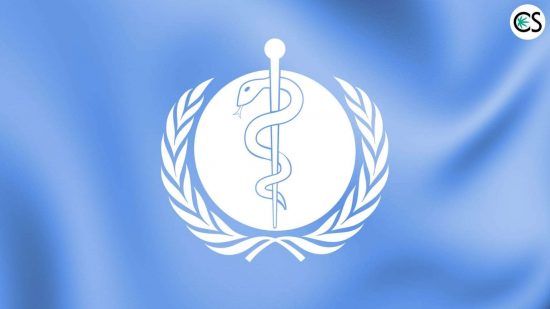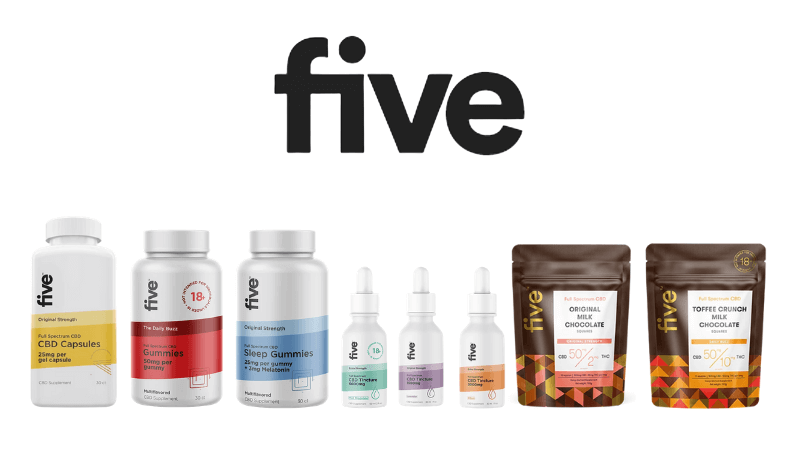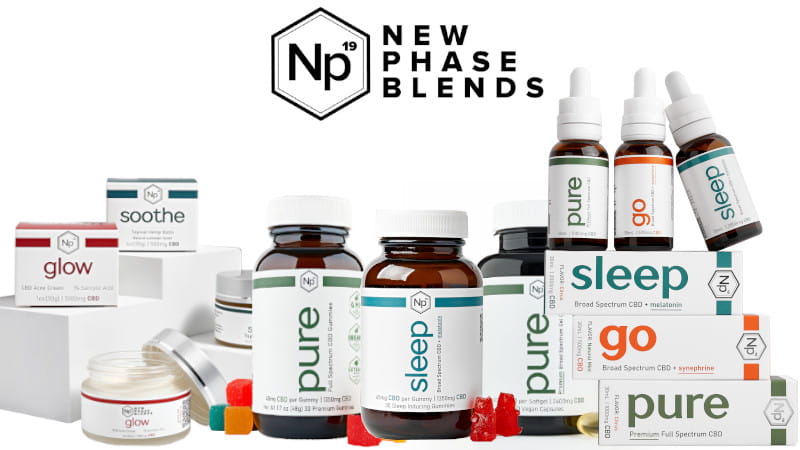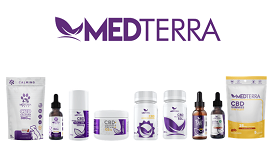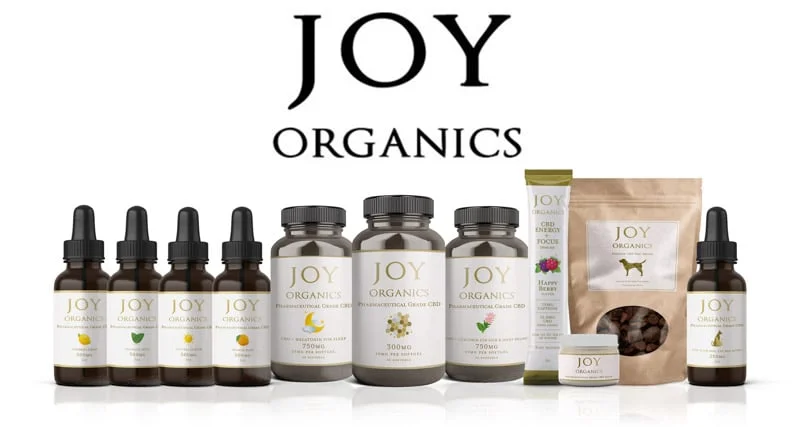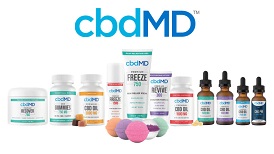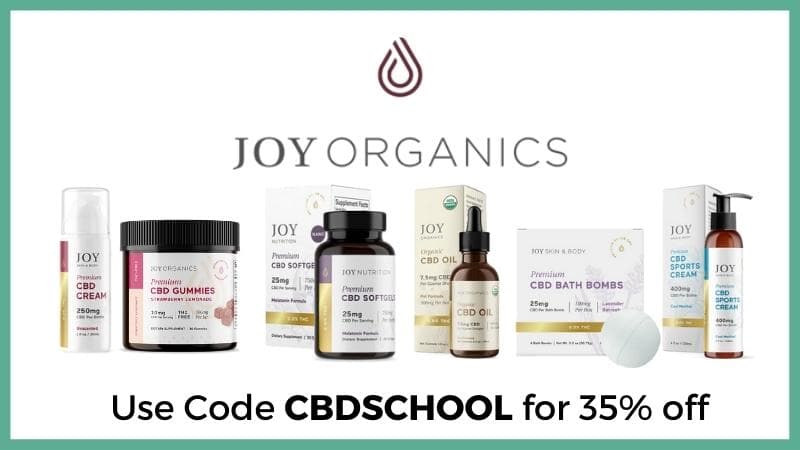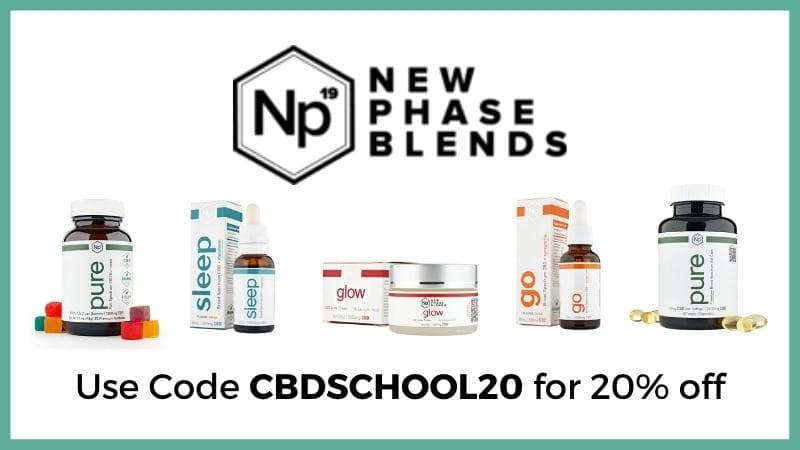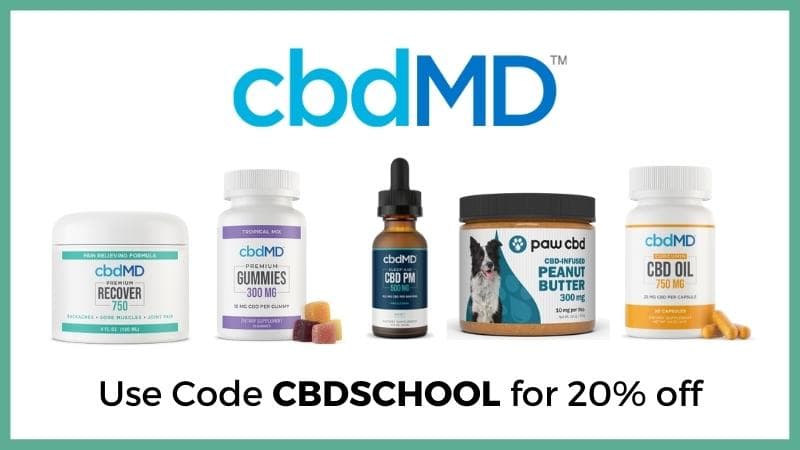Used by all different kinds of people for a myriad of health conditions, CBD has provided a plant based alternative to many prescription and over-the-counter medications available. Is CBD safe to use, though, or is CBD dangerous? In this article, we dig into the safety of CBD, and determine whether or not people should be concerned with using it.
Is CBD Safe?
CBD is used by countless people across the globe, but is CBD really safe?
Assuming that the extraction process of the CBD and the hemp from where it is sourced meets good manufacturing standards, CBD is considered safe and non-toxic.
A 2001 review looked at the safety of CBD across the range of several concentrations based on vivo and in vitro reports collected from various online resources.
It found that several studies suggest CBD is non-toxic and “does not induce changes on food intake, does not induce catalepsy (a disturbance in the nervous system that causes a momentary loss of voluntary and involuntary movement), does not affect physiological parameters (heart rate, blood pressure, body temperature), does not affect gastrointestinal transit, and does not alter psychomotor or psychological functions.”
Organically Grown Hemp is Safe
When growing hemp, it will soak up any toxins or chemicals present in the soil it was grown in, a process known as phytoremediation.
Hemp is so adept at pulling toxins from the soil in which it’s cultivated that hemp plants were planted around the Chernobyl nuclear disaster site to remove radiation from the soil.
This is why it’s vital to purchase hemp that’s cultivated using organic, sustainable growing practices in nutrient-rich soil.
It’s important to get your CBD products from a reputable brand. Luckily there’s plenty on the market to choose from and meet everyone’s needs.
The worst stories of people getting “sick from CBD” don’t even involve any actual CBD at all!
These cases involve people purchasing synthetic cannabinoid products at smoke shops or online, sometimes called slang names like K2, being marketed as “CBD” or “CBD Oil”.
Synthetic cannabinoids are known for causing strong mind altering effects to the user and often negative side effects.
Enjoying your read? Sign up to be a part of the CBD School community, and we’ll send you a free eBook called The Beginner’s Guide to CBD. It will get you caught up in all things CBD. Additionally, you’ll get updates on the best CBD products and discounts in the industry.
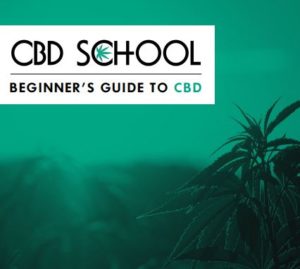
The World Health Organization on the Safety of CBD
Perhaps the most monumental evidence on the safety of CBD comes straight from the World Health Organization (WHO).
In a November 2017 report, WHO found that CBD does not contain any adverse health effects and that the non-psychoactive cannabinoid is well-tolerated in both humans and animals.
What’s more, is that WHO stated that CBD does not cause physical dependence and is “not associated with abuse potential.”
In the report, they also mentioned that people aren’t getting high off of CBD.
“To date,” authors of the report wrote, “there is no evidence of the recreational use of CBD, or any public health related problems associated with the use of pure CBD.”
Aside from the cannabinoid being safe and well-tolerated in humans without any potential for abuse, WHO also contended that CBD has some very serious medical benefits.
The report not only mentioned that CBD has “been demonstrated as an effective treatment for epilepsy” but also pointed to “preliminary evidence” that CBD has the potential to be useful in other conditions such as cancer, Alzheimer’s disease, Parkinson’s disease, and many other serious medical conditions.
The groundbreaking WHO report also mentioned that “several countries have modified their national controls to accommodate CBD as a medicinal product.”
They also remarked that the US isn’t one of them, but experts found that the “unsanctioned medical use” of CBD is extremely common in America.
National Institute on Drug Abuse and Their Stance on CBD
While the National Institute on Drug Abuse (NIDA) contends that cannabis containing CBD contains high potential for abuse (marijuana is still a Schedule I Substance), they have a bit of a different stand on CBD.
According to a 2015 report, NIDA said, “CBD appears to be a safe drug with no addictive effects, and the preliminary data suggest that it may have therapeutic value for a number of medical conditions.
Addressing barriers that slow clinical research with CBD would accelerate progress.
NIDA will do what we can to address such barriers and expedite the study of this potentially valuable compound, as well as other components of the marijuana plant.”
Research on CBD Safety By the US Department of Health and Human Services
According to a 2015 Senate testimony by Dr. Nora Volkov published by the U.S. Department of Health and Human Services (HHS) CBD is actually quite safe.
In Volkov’s words:
“For reasons discussed previously, despite its molecular similarity to THC, CBD only interacts with cannabinoid receptors weakly at very high doses, and the alterations in thinking and perception caused by THC are not observed with CBD. The different pharmacological properties of CBD give it a different safety profile from THC.”
A review of 25 studies on the safety and efficacy of CBD did not identify significant side effects across a wide range of dosages, including acute and chronic dose regimens, using various modes of administration.
However, Dr. Volkov does go on to warn that, “…additional safety testing among specific patient populations may be warranted should an application be made to the Food and Drug Administration.”
Is CBD Oil Safe for Kids?
Great, so CBD oil looks pretty safe, but what about kids?
A lot of conventional prescription medications (i.e. anticonvulsants) work for adults, but can have devastating effects on childhood development.
Related: Best CBD Gummies for Kids
Epilepsy and Children
Historically, CBD has been used on children with severe epilepsy, for instance, but does that mean it’s safe or just a desperate last resort?
A scientific journal publication from the US National Library of Medicine seems to have an answer.
According to the paper, researchers used CBD on a 10 year old girl who was suffering from a variety of symptoms related to PTSD, including anxiety, insomnia and behavioral issues at school.
After administering the oil, they noticed a huge improvement in all of these areas to the point where she was living a virtually normal life.
The publication says that:
“Our patient did not voice any complaints or discomfort from the use of CBD. We routinely asked about headache, fatigue, and change in appetite or agitation in addition to conducting a routine psychiatric evaluation. Although CBD is considered generally safe, the long-term effects are yet to be studied.”
CBD seems to be safe to administer to children as well.
Is it Safe for Seniors to Use CBD?
As many seniors are aware, with age comes a slew of health concerns.
Until recently (and still most commonly), elderly patients have been forced to take multiple prescription medications to deal with their symptoms – a practice called “polypharmacy,” according to an article by Registered Geriatric Nurse, Eloise Theisen.
We established earlier that CBD appears to be generally safe, but it could be a bit different for seniors.
Since “…90 percent of adults over the age of 60 are taking at least one medication and 30 percent of those adults are taking five or more a day,” according to Thiesen, prescriptions are a mitigating factor with CBD.
She explains that “Cannabidiol (CBD) is attractive to older adults because of the mild psychoactive properties associated with it.”
But, she warns that, “CBD can interfere with the metabolism of other drugs thereby making CBD and other medications ineffective.”
Metabolism of other drugs and CBD is an important topic. We cover CBD-drug interactions in more detail later in this article.
Simply put, a patient’s age doesn’t seem to be a factor, but the vast majority of elderly people could experience adverse effects or medicinal complications with CBD because they’re likely to be on at least one additional prescription drug.
Is CBD Oil Safe For Pets?
Believe it or not, the benefits of CBD oil aren’t exclusive to humans.
Dogs and cats can experience the same health issues we do, like degenerative diseases, cancer, arthritis, and even epilepsy.

Using CBD to treat a variety of animal issues may not have crossed everyone’s mind, but owners have tried it with surprising results.
An article by the American Veterinary Medical Foundation reports beneficial effects for health issues in cats, dogs, and even horses – some of which had stopped responding to mainstream treatments.
But despite this, the veterinary community wants to exercise caution.
According to Dr. Dawn Boothe of Auburn University’s College of Veterinary Medicine, there simply isn’t enough evidence to conclusively support the use of CBD.
“I’m saying there’s enough justification that we need to study it,” she explains.
Third Party Testing CBD is Safest For Consumption
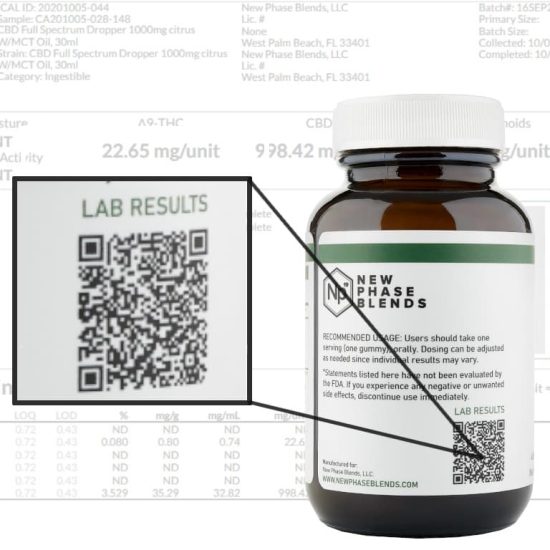
What about the stories of people becoming sick from CBD? These stories, unfortunately, exist and have led to some obvious confusion about the safety of CBD.
Remember, CBD is still an industry with limited regulation any pretty much anyone can make it and say its quality.
The thing is, if the hemp used to extract the CBD was grown with toxic pesticides and dangerous chemicals, they are passed right on to the consumer.
This is why you need to stick with third party tested CBD products. The third party lab test will give a report that specifies exactly what is in the product you are about to consume.
The report is viewable via a small QR code on your product, and will show information such as:
- cannabinoid content
- residual pesticides
- heavy metals
- terpenes
This report is the only way you can determine if your CBD product is safe.

Does CBD Have Side Effects?
Now that we’ve covered safety, let’s see what we know about side effects of CBD.
Unlike potential risks, side effects are very well-documented and quite diverse.
According to the National Institute of Drug Abuse, “A review of 25 studies on the safety and efficacy of CBD did not identify significant side effects across a wide range of dosages, including acute and chronic dose regimens, using various modes of administration.”
This doesn’t mean that side effects won’t occur.
But aside from things like dry mouth, temporary dysphoria, dizziness, diarrhea, and drowsiness, CBD seems to be quite mild and – for most people – free of any unpleasantness.
The only major risk identified so far, according to a journal entry in the US National Library of Medicine, is a potential impact on fertility.
Drug Interactions With CBD
According to the same source mentioned above, drug interactions can be a problem when using CBD products.
It states that CBD can cause “inhibition of hepatic drug metabolism.”
This is a fancy way of saying that taking CBD oil might make it difficult to absorb and process medicines metabolized in the liver.
This includes medications that fall into the P450, 3A, 2C and 2B categories.
When you ingest any kind of medication, it has to pass through your liver, just like everything else.
Your liver then breaks it down and distributes it into your bloodstream.
Everything from antidepressants and anticonvulsants to over-the-counter medications, like Tylenol, need to make it past this barrier.
But if your liver can’t properly metabolize these chemicals, the effects will be reduced and the CBD could be more of a hindrance than a help.
Can You Get Addicted to CBD?
The last thing anyone wants when looking to improve their health or relieve pain is to become addicted to what they’re using to make them feel better.
The opioid epidemic is an unfortunate, yet perfect example of this.
When considering whether or not CBD is habit forming, it’s important to understand a little about addiction itself.
Addiction is truly a multi-faceted condition, with both physical and psychological facets.
Addictive substances (think opioids, cocaine, alcohol, nicotine, etc.) generate a release of dopamine in the brain (a chemical responsible for reward and feeling good).
With continued use, the body becomes dependent on the substance and a person will experience physical and psychological withdrawal when they stop using it.
This back and forth, withdrawal/reward process leads to a person seeking out the substance instinctively in order to feel normal.
Once a person becomes addicted to a substance, they don’t really use it to get high, but just to feel like they can function normally without experiencing withdrawal.
Here’s the thing about CBD. It doesn’t cause that flood of dopamine to be released and it doesn’t get you high.
That euphoric feeling people get from using cocaine, for example, simply doesn’t happen when people ingest CBD.
And when people stop using CBD, there are zero symptoms of withdrawal.
Summary – Is CBD Safe to Consume?
Increasing evidence has found that CBD is not only safe and well-tolerated by humans and animals alike, but also holds no potential for abuse and is not used as a recreational substance to get high.
In fact, CBD can’t get you high due to the action that occurs with various neurotransmitters in the brain.
Many people who use CBD do note that it has some mental effect, with the most common reports being relaxation or some lethargy or drowsiness. But CBD is not intoxicating.
If you’re concerned with the safety of CBD, feel free to leave your worries at the door.
Even though the US doesn’t completely stand behind CBD yet (they mostly just want to see more research), countless countries across the globe have embraced CBD as a viable, safe alternative to several available medications available on the market.
Backed by WHO, several studies, and countless reviews, CBD has shown to be safe.
Not only that, but it’s non-addictive and widely renowned for the life-changing benefits it contains.
As with any new supplement or change to your wellness routine, before starting on your journey to improved health and wellness with CBD, it’s always recommended to speak with your primary doctor or a healthcare professional.
** Before you start using CBD hemp oil, do an inventory of the medications you are on. Research or consult a health professional about how the medications you are taking are metabolized. If CBD will impact another medication you are on, you may want to reconsider taking it or waiting until you are off certain medications you take. Important: always consult a health professional you trust, especially a health professional who specializes in cannabis medicine. **
